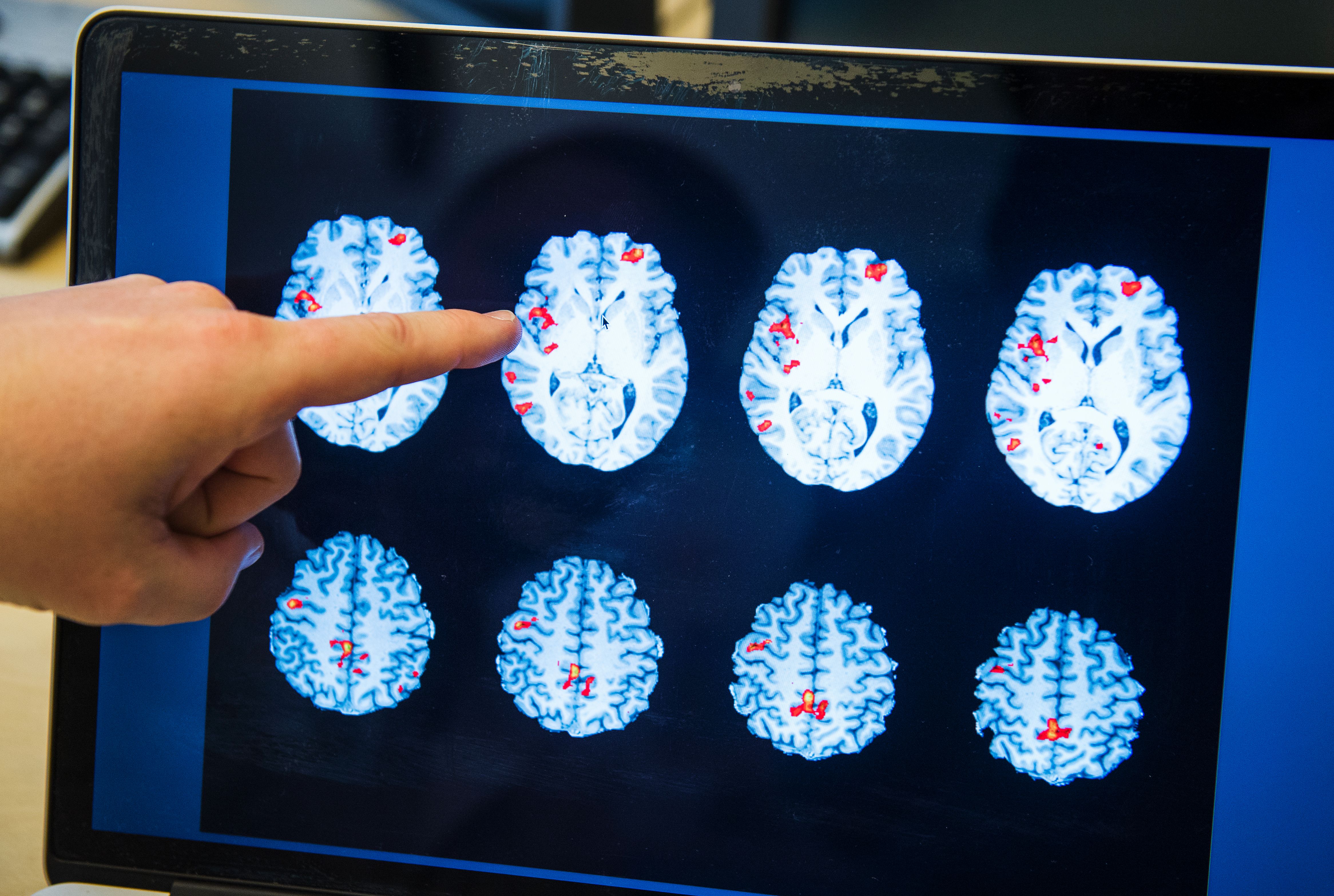Suicidal thoughts can be identified using AI
Computer programme uses brain scans to spot suicidal ideation with 91% accuracy

A free daily email with the biggest news stories of the day – and the best features from TheWeek.com
You are now subscribed
Your newsletter sign-up was successful
Artificial intelligence could be used to identify whether or not someone is feeling suicidal, a study has found.
In a study published in the journal Nature Human Behaviour, a team of US researchers used an AI programme to examine brain scans of 34 people, half of whom were known to be suicidal, for specific thought patterns relating to suicide.
Each participant was presented with three lists of ten words, reports MIT Technology Review - ten death-related words, ten words relating to positive concepts (e.g. “carefree”) and ten words related to negative ideas (e.g. “trouble”). Their brains were then scanned using an MRI.
The Week
Escape your echo chamber. Get the facts behind the news, plus analysis from multiple perspectives.

Sign up for The Week's Free Newsletters
From our morning news briefing to a weekly Good News Newsletter, get the best of The Week delivered directly to your inbox.
From our morning news briefing to a weekly Good News Newsletter, get the best of The Week delivered directly to your inbox.
The scientists used the AI programme to search the scans to see how the participants responded to the lists of words. The results showed that healthy patients and those with suicidal thoughts showed markedly different reactions. For example, when the suicidal participants were shown the word “death”, the “shame” area of their brain lit up more than it did in the control group.
Of the 34 participants, says Engadget, the system was able to identify those known to be “suicidal ideators” with an accuracy of 91%.
However, while the system could potentially be used to help people with suicidal thoughts, Wired warns, the small sample group may not accurately reflect the “broader population”.
AI technology is being developed by researches across the world in a bid to help the medical industry.
A free daily email with the biggest news stories of the day – and the best features from TheWeek.com
Earlier this week, researches from Showa University, in Yokohama, Japan, revealed a similar technology that can identify bowel cancer through a colonoscopy in “less than a second”.
-
 6 of the world’s most accessible destinations
6 of the world’s most accessible destinationsThe Week Recommends Experience all of Berlin, Singapore and Sydney
-
 How the FCC’s ‘equal time’ rule works
How the FCC’s ‘equal time’ rule worksIn the Spotlight The law is at the heart of the Colbert-CBS conflict
-
 What is the endgame in the DHS shutdown?
What is the endgame in the DHS shutdown?Today’s Big Question Democrats want to rein in ICE’s immigration crackdown
-
 Claude Code: Anthropic’s wildly popular AI coding app
Claude Code: Anthropic’s wildly popular AI coding appThe Explainer Engineers and noncoders alike are helping the app go viral
-
 Will regulators put a stop to Grok’s deepfake porn images of real people?
Will regulators put a stop to Grok’s deepfake porn images of real people?Today’s Big Question Users command AI chatbot to undress pictures of women and children
-
 Most data centers are being built in the wrong climate
Most data centers are being built in the wrong climateThe explainer Data centers require substantial water and energy. But certain locations are more strained than others, mainly due to rising temperatures.
-
 The dark side of how kids are using AI
The dark side of how kids are using AIUnder the Radar Chatbots have become places where children ‘talk about violence, explore romantic or sexual roleplay, and seek advice when no adult is watching’
-
 Why 2025 was a pivotal year for AI
Why 2025 was a pivotal year for AITalking Point The ‘hype’ and ‘hopes’ around artificial intelligence are ‘like nothing the world has seen before’
-
 AI griefbots create a computerized afterlife
AI griefbots create a computerized afterlifeUnder the Radar Some say the machines help people mourn; others are skeptical
-
 The robot revolution
The robot revolutionFeature Advances in tech and AI are producing android machine workers. What will that mean for humans?
-
 Separating the real from the fake: tips for spotting AI slop
Separating the real from the fake: tips for spotting AI slopThe Week Recommends Advanced AI may have made slop videos harder to spot, but experts say it’s still possible to detect them